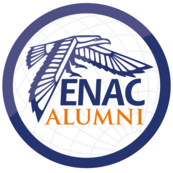
A new Think Tank Workforce Development
ENAC Alumni is creating a new Think Tank on Aeronautical and Aerospace Workforce Development to Help Address Current Issues and Emerging Challenges.
Our world is changing at an increasingly faster pace. These changes are associated with tremendous challenges as well as formidable opportunities impacting all organizations. In aviation, personnel shortage and difficulties in recruiting talents are among the top concerns for the future. The COVID-19 pandemic has just exacerbated and brought the spotlight on issues that have been developing for years.
Building the future airport workforce was identified as one of the most important long-term challenges by ENAC Alumni’s The Future of Airports: A Vision of 2040 and 2070. Similar conclusions were drawn by major industry organizations and other research initiatives within other segments of the aerospace industry which are subject to irreversible trends.
Klaus Schwab, Founder and Executive Chairman of the World Economic Forum, has argued as late as 2016 that we have entered a completely new industrial revolution. The Industry 4.0 we find in many publications is now almost 8 years old; however the challenges are still present and driven by several converging forces:
- Globalization: Our world is highly connected and major supply chains rely on global trade. Regional conflicts or local incidents can significant disrupt the logistics of critical industrial processes.
- Climate change: We have begun to feel the disruptive impact of rising temperatures and related weather events. The world is already 1 degree Celsius warmer than in the 1950s.
- Urbanization and rural revival: It is common knowledge that 2/3 of the world population will live in cities by 2030. Large cities are experiencing congestion and skyrocketing housing prices. At the same time, some small communities are reviving with new residents looking for a more affordable cost of living.
- Digitalization and automation have already changed our world. But this is just the beginning… For instance, generative AI is increasingly impacting business practices. This means we are increasingly dependent on specific technical expertise in information and intelligent systems.
- The Great Retirement: Baby Boomers are leaving the workforce all at once. Their departure is creating a significant gap in staffing, but also the potential loss of a formidable amount of invaluable empirical knowledge.
- Next generation’s expectations: The new generations are more focused on work-life balance. They expect flexible hours and remote work opportunities. Night shifts and operational duties may not be seen as attractive as before.
- And many other “mega trends” and drivers that are emerging in an always more volatile, uncertain, complex and ambiguous world!
The aviation and aerospace industry, perhaps more than any others, is facing the challenges raised by these “mega trends” and needs to innovate for the future. Our industry has pledged to achieve net zero by 2050. We are massively introducing AI, 3D printing, and other innovations at all levels.
The engineer, because he or she is historically situated at the crossroads of societal objectives and material contingencies, is a determining factor in the socio-ecological transition. The urgency is indisputable: the economy and society need to make plans for these changes now, especially when it comes to education and training. Indeed, it will take many years for educating new generations or training the existing workforce, and then for new graduates to be capable of putting new skills into practice and be able to initiate changes in companies, communities and associations.
This is why we need to start today to discuss these issues and develop guidelines toward the industry and institutions. These recommendations will be shared with ENAC as well. The goal is to provide analyses and tools to facilitate the decision-making process when it comes to develop future-ready curriculums and help the industry better upskill their own employees.
Having this ambition, we will need to explore various domains including:
- Sociological and ecological issues to integrate into daily engineer’s work, climate changes, increasing scarcity of available resources, especially energy, and the social consequences of these disturbances,
- System thinking and collaboration needed by ever more sophisticated digital ecosystems and rapidly changing technologies,
- Intellectual curiosity, innovation and ethical considerations with the convergence of disciplines brought by new technologies,
- Generational, social, cultural and gender diversity, interculturality which involves internationalization, mobility in studies, and diverse career paths,
- Management methods since engineers have key roles in any company organization, they will be key players for anticipating and transforming new ways of working and managing,
- Corporate Social Responsibility. The engineer must be trained in ethical issues and be capable of creating virtuous innovation. His ability to anticipate will be crucial.
The new think tank is chaired by Patrick LARROQUE (IENAC 92). Our members interested in joining the conversation can register on the website or reach out to the chair at:
patrick.larroque@alumni.enac.fr
Further readings:













No comment
Log in to post comment. Log in.